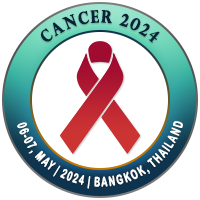
V.A. Misyurin
GeneTechnology LLC, Russia FederationTitle: Impact of PRAME gene expression on prognosis in various cancers: insights from a comparative analysis
Abstract
Introduction: The PRAME gene is known to be expressed in approximately half of all cancer patients, and its encoded protein plays crucial roles in maintaining the undifferentiated state of embryonic cells and promoting their rapid proliferation. However, the effect of PRAME gene expression on prognosis remains unclear for several types of cancers.
Methods: Using datasets from the GEPIA resources, we compared PRAME expression data with overall and event-free survival parameters in patients with different types of cancers. We used the log-rank test to compare the survival curves of patients based on their expression levels of the PRAME gene.
Results: Our analysis revealed, for the first time, a significant relationship between increased PRAME gene expression and decreased overall survival time in adrenocortical cancer, colon cancer, pleural mesothelioma, and pancreatic adenocarcinoma. We observed a positive association between high levels of PRAME gene expression and increased overall survival time in patients with uterine carcinosarcoma. Genes ADAMTS2, CTAG2, FAM69B, FAR2P2, and MAGEA2B, were coexpressed with PRAME and linked to worse prognosis in multiple cancer types. Conversely, genes DUSP9, KIF25-AS1, MAGEA9B, RNASEH1P1, RP11-505E24.2, and SPATA31C1 were coexpressed with PRAME and associated with a better prognosis in certain cancers.
Conclusion: Our findings shed light on the prognostic implications of PRAME gene expression in different cancers and its association with the coexpression of other genes. The identification of gene coexpression patterns associated with either favorable or unfavorable prognosis provides valuable insights for improving cancer prognosis prediction methods. Evaluating the level of PRAME expression in a subset of patients with similar diseases would allow for personalized treatment decisions and more accurate prognosis assessment.
Biography
Vsevolod Misyurin completed his PhD at the age of 24 years from Federal State Budgetary Institution "NMRC of Oncology n. a. N.N. Blokhin" of the Ministry of Health of the Russian Federation, Russia. He is the senior researcher at GeneTechnology LLC, Russia, and postdoc researcher Karolinska Institutet, Sweden. His sphere of scientific interest is signaling pathways, cancer development and investigation a way for cancer treatment. He has over 90 publications that have been cited over 100 times, and his publication h-index is 6.

